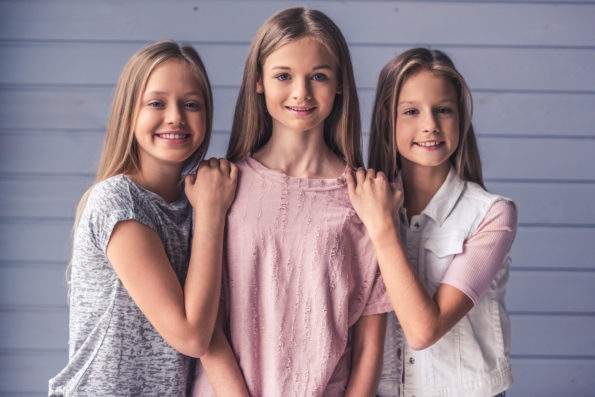New Research Confirmed That Past Experiences With Peer Adversity Can Predict Teenage Girls’ Self-Esteem And Sense Of Belonging, Paving The Way For New Intervention Programs

Homework and exams are seldom the most intimidating part of being a high school student. Instead, cliques, bullying, and the need to belong are much more frightening.
“We all feel the need to fit in socially, but teenagers feel this need more strongly than most. What we don’t understand is why some teenagers feel it more strongly than others,” discussed Haley Skymba, a clinical psychology doctoral student at the University of Illinois Urbana-Champaign.
Joined by Karen Rudolph, a researcher from the Beckman Institute for Advanced Science and Technology, Skymba recently conducted a novel study that is among the first to show how past experiences with friendlessness, bullying, and social exclusion explicitly impact how teenage girls perceive their belonging and sense of self-worth.
This research is a monumental step toward the design of intervention programs aimed at improving teenagers’ mental well-being.
Adolescence is a time of drastic changes– both physical and emotional. And the brain is partly to blame for this emotional turbulence.
During adolescence, the amygdala– which is responsible for influencing fight-or-flight responses– becomes much more active. This leads teenagers to feel intensified effects of their emotional experiences.
Simultaneously, teenagers also undergo a relational hierarchy swap. Rather than prioritizing familial relationships, teens begin to place more value on acceptance among friends and classmates.
According to the researchers, teenage girls specifically represent a demographic that seeks social belonging with more urgency than any other age group.
“For some girls, the need to belong becomes a driving force in their relationships, increasing their susceptibility to mental health disorders like anxiety and depression, and, potentially, their vulnerability to peer pressure,” Rudolph explained.

georgerudy – stock.adobe.com – illustrative purposes only, not the actual people
Skymba and Rudolph wanted to better understand this phenomenon and designed a study to observe trends among 89 girls who had an average age of 16-years-old.
The researchers’ goal was to analyze how early life experiences with peers might influence teen girls’ sensitivity to interrelational pressure during adolescent-hood.
In the study, each participant first began by rating how strongly they agreed with various statements that described a need for belonging and approval.
For instance, “I want other people to accept me,” and “Being liked by other kids makes me feel better about myself.”
At the same time, the teen girls also self-reported their own perceived levels of social belonging, self-esteem, and social control.
Afterward, all of the participants participated in a virtual ball-tossing game known as Cyberball. This game was designed to simulate peer exclusion in a safe way.
Each player was able to control an onscreen hand and was encouraged to play a game of catch first with computer-programmed avatars, then with other study participants.
During the first round, each teen was tossed the ball the same number of times. Then, in the second round, the participants were slowly excluded from the game.
At 15 and 35 minutes following the game’s end, each participant was asked to record the levels of social belonging, self-esteem, and social control that they experienced during the game.
For the final stage of the study, the researchers also documented each participant’s history of peer adversity– both past and recent. Then, third-party coders translated these histories into numeric rankings.
The goal was to measure the participants’ general interpersonal needs, in addition to how those needs may be threatened in the event of a live stressor.
Afterward, the researchers were able to compare those findings against the information from the coders to spot patterns that connect past peer adversity with the present.
Through this analysis, the team ultimately found that teenage girls’ interpersonal needs are definitely a result of past experiences.
In turn, knowledge of teens’ peer history may allow for a better understanding of how to nurture those needs via intervention.
“This study is invaluable in our efforts to identify who is the most vulnerable and pinpoint when and where that vulnerability originates,” Rudolph stated.
The participants who had a more recent history of peer adversity reported feeling an elevated need for peer approval, regardless of whether or not there was a history of lifelong adversity.
On the flip side, participants who did have a lifelong history of peer adversity reported more sustained threats to their sense of belonging as opposed to participants without.
So, while the researchers recognize that it is impossible to prevent negative peer experiences during teenhood, they believe the study’s findings can help teens better respond to these instances.
“We can encourage adolescents to find self-worth internally, and we can equip them with coping mechanisms they need to create a stable foundation of well-being,” Skymba underscored.
In this vein, the researchers now plan to design an intervention program that is aimed at helping teenagers manage intense and fluctuating emotions.
To read the study’s complete findings, which have since been published in Wiley Online Library, visit the link here.
If true crime defines your free time, this is for you: join Chip Chick’s True Crime Tribe
A Guy Asked Her Out On A Date And When She Said She Was Starving, He Said He Already Ate
Sign up for Chip Chick’s newsletter and get stories like this delivered to your inbox.
More About:Science





